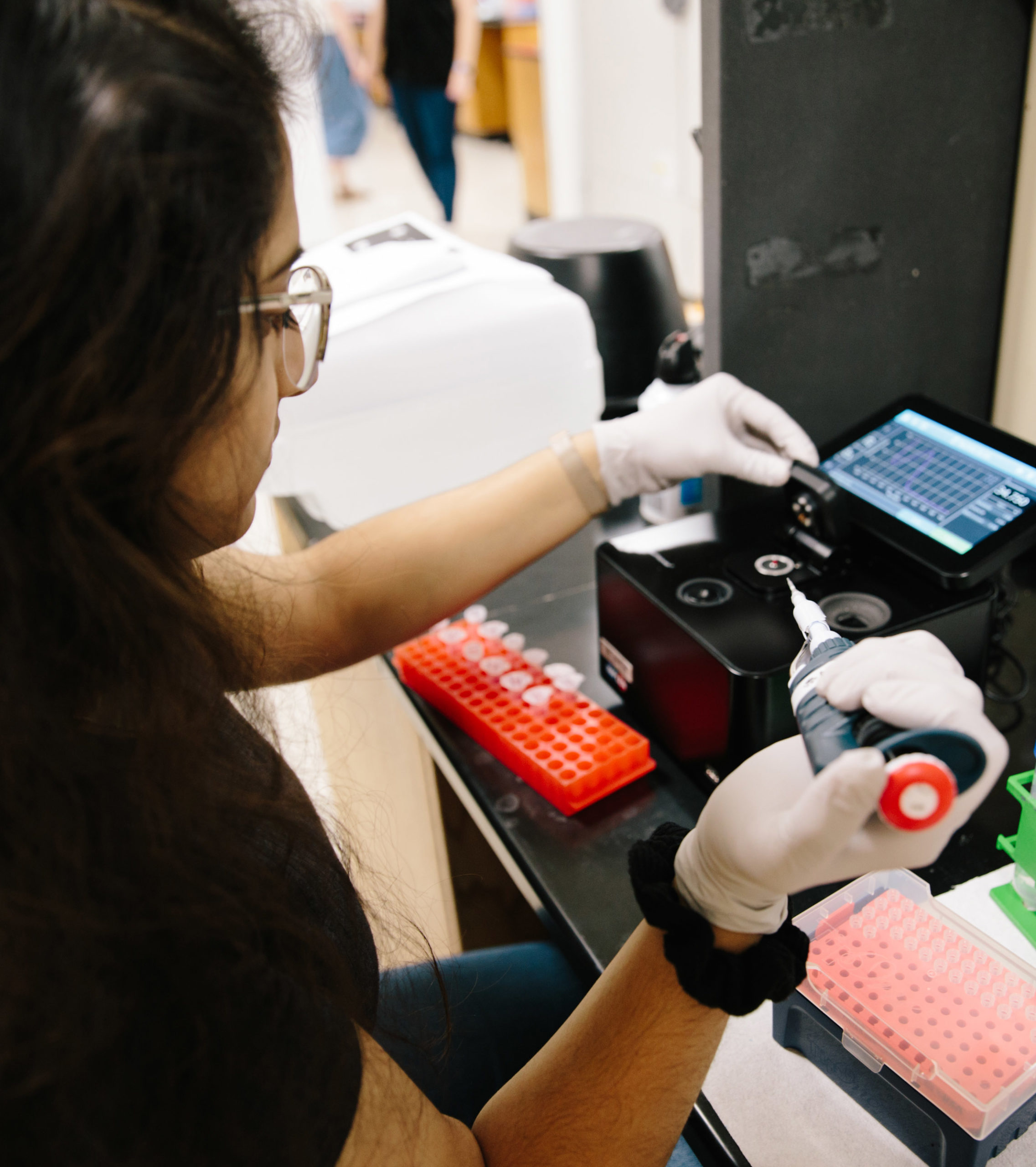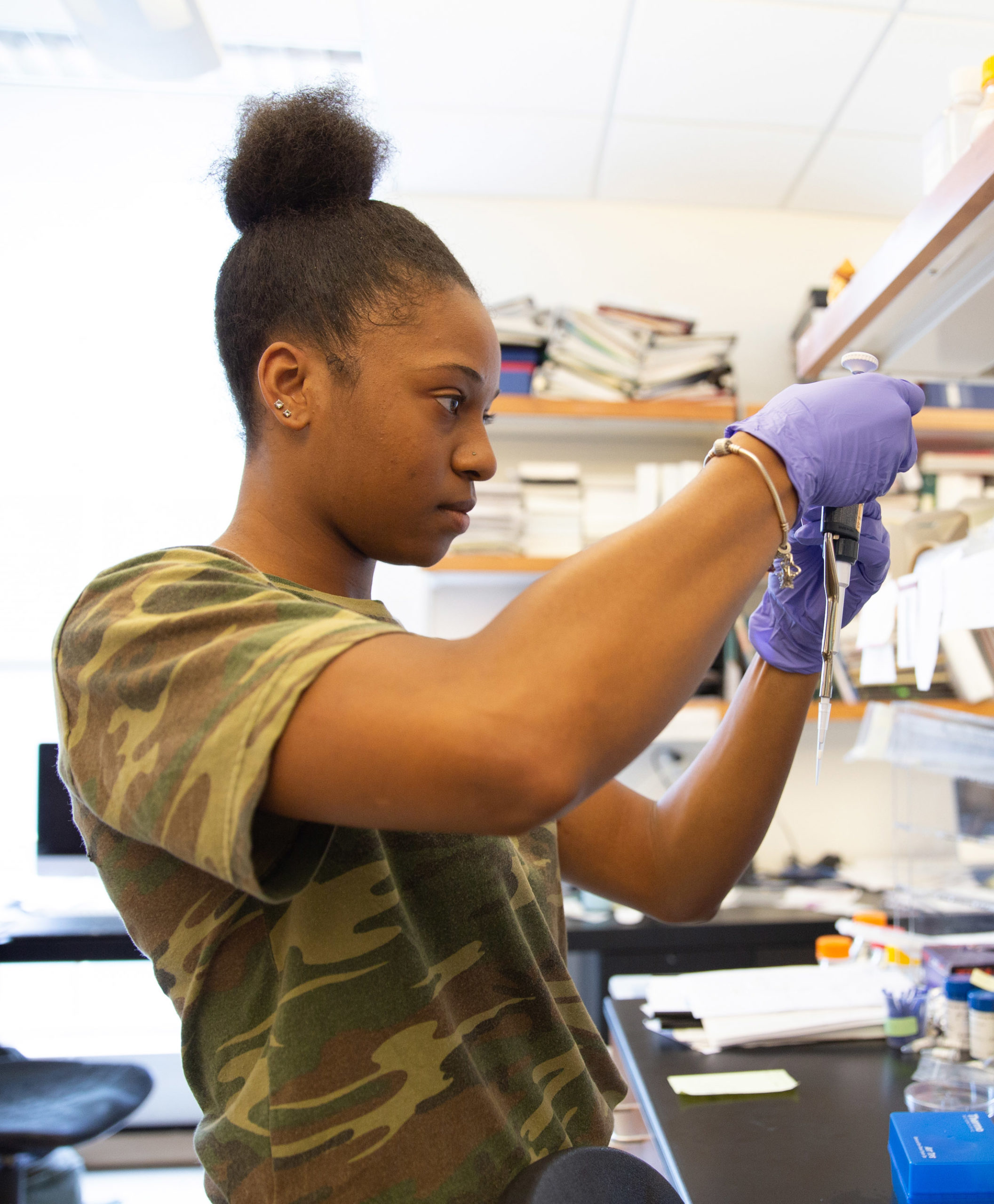Diversity MATTERS Initiative
DIVERSITY MATTERS INITIATIVE
Mission
The Interdisciplinary Neuroscience program at the University of Georgia is committed to the advancement of neuroscience research and graduate training that is innovative and inclusive. We recognize that rapid advances in technology and scientific knowledge, coupled with the increasingly global workplace environment, call for a neuroscience workforce that is not only technically advanced in the discipline, but is also culturally and experientially diverse, capable of reaching beyond the traditional laboratory and working across disciplines and within diverse communities to advance the understanding, diagnosis, and treatment of recognized and emerging diseases of the brain. Our Neuroscience Graduate Program trains doctoral students using novel multidisciplinary approaches to study the brain and behavior so that as future neuroscientists, they will be prepared to address the major neurologic and neurodegenerative diseases of the 21st century. Providing a collaborative, supportive, and inclusive environment for all of our students is a core value and we are dedicated to broadening the participation of students from diverse backgrounds that are underrepresented in neuroscience research training.
Training programs at every stage
We offer two specialized programs designed to enhance training at the undergraduate and graduate levels. These opportunities are designed to meet the specific needs of current and future Ph.D.-level research scientists underrepresented in biomedical research through comprehensive mentoring, targeted institutional support, and curated resources in order to facilitate further professional advancement of our participants to the next step of their neuroscience careers.
Our novel programs accomplish this by:
- Strengthening the diversity of our recruitment pool by offering Summer Undergraduate Research Experiences in Neuroscience (NSURE) with a focus on students who are underrepresented in neuroscience from UGA and elsewhere.
- Enhancing the graduate training environment for Neuroscience students from diverse backgrounds who are underrepresented in biomedical neuroscience research to improve retention and self-agency through the following mechanisms:
- Mentor training programs for neuroscience faculty, graduate students, and NSURE participants focusing on mentoring preferences, cross-cultural understanding and co-cultural communication;
- Enhanced stage-specific transition support for graduate students;
- Personal and professional development training opportunities for doctoral students, as well as community building activities.
Summer Undergraduate Research Experience in Neuroscience (NSURE)
Undergraduate students take part in eight-week interdisciplinary, research-immersive experiences in neuroscience laboratories across the UGA campus. Participants begin the program by completing a one-week intensive training in lab basics, safety, and biomedical ethics. The second week, students enter their host lab, where they spend the remainder working under the guidance of their primary faculty mentor on an interdisciplinary project in collaboration with a second faculty member.
Throughout our summer program, participants are mentored by their assigned faculty/graduate student team. Students participate in several aspects of research from project design, data collection, and analyses, to presentation and dissemination. In addition to this research focus, our program provides ample opportunities for participants to interact with faculty and students outside of their primary host laboratories. These include intellectual activities such as interdisciplinary discussions (laboratory meetings and journal clubs), training in transferable skills such as communicating scholarship and working in multidisciplinary teams, and social activities that build community and networks.
Diversity MATTERS Scholarship
Many students enter their graduate programs with little understanding of the complex landscape of higher education or how different philosophies in graduate programs drive expectations for academic excellence and ideal career pathways. Students traditionally underrepresented in graduate education face additional challenges in an academic atmosphere that may not recognize biases, assumptions, and perceptions that further hinder their integration into graduate school life. Our program aims to address these challenges through targeted mentorship training. This curriculum brings identified scholars and PIs together, working collaboratively to design personalized, enhanced communications aimed at eliminating or minimizing the negative effects of these additional stressors.
In recognition of the unique challenges facing underrepresented students in the biomedical sciences, our program also provides a generous partial stipend and travel funding.
Affiliated: Women in Science (WiSci) Mentoring Program
For questions, please contact their Mentoring Coordinator, Josephine Bou Dagher – jb77465@uga.edu
Diversity MATTERS Graduate Training Program
Many students enter their graduate programs with little understanding of the complex landscape of higher education or how different philosophies in graduate programs drive expectations for academic excellence and ideal career pathways. Students traditionally underrepresented in graduate education face additional challenges in an academic atmosphere that may not recognize biases, assumptions, and perceptions that further hinder their integration into graduate school life. Our program aims to address these challenges through targeted mentorship training. This curriculum brings identified scholars and PIs together, working collaboratively to design personalized, enhanced communications aimed at eliminating or minimizing the negative effects of these additional stressors.
In recognition of the unique challenges facing underrepresented students in the biomedical sciences, our program also provides a generous partial stipend and travel funding. This opportunity can be renewed for up to three (3) academic terms.



